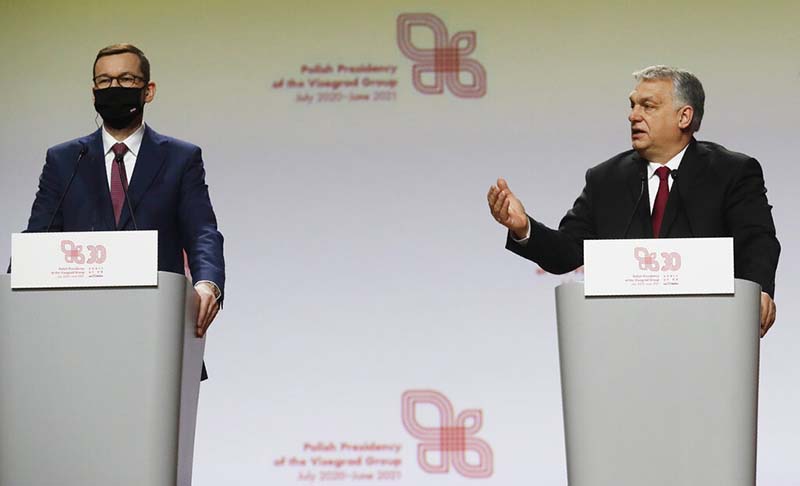

The European Union on Thursday took an important step toward fining Hungary for refusing to lift restrictions on the financing of non-governmental organisations from abroad.
The step comes after the EU’s top court ruled that restrictions imposed by the government of Hungarian Prime Minister Viktor Orban on the foreign financing of independent groups are incompatible with the 27-nation bloc’s law. Many of the groups focus on civil rights and democracy issues.
The EU’s executive arm, the European Commission, is sending a “letter of formal notice” to the nationalist government in Budapest giving it two months to explain why it’s not complying.
The Commission, which monitors the way EU laws are applied, can then refer the matter back to the court with a proposal on the size of the fine.
In 2017, Hungary adopted legislation forcing NGOs receiving foreign funding of more than 7.2 million forints ($24,200) a year to register with the courts and identify themselves as foreign-funded in their publications.
NGOs also have to list foreign sponsors giving more than 500,000 forints ($1,680) annually.
The law is nominally meant to increase transparency among civic groups and boost efforts against money laundering and the financing of terrorism. But Amnesty International has described it as a “vicious and calculated assault on civil society” meant to silence critical voices in Hungary.
The European Court of Justice ruled last year that “Hungary has introduced discriminatory and unjustified restrictions on foreign donations to civil society organizations, in breach of its obligations” under the EU’s governing treaties.
The Hungarian government said the rules show which groups get funding from the Open Society Foundations set up by Hungarian-American billionaire George Soros, whom Orban repeatedly claims seeks to influence Hungarian policies and the country’s elections.
The Commission said Thursday that Hungary has still not complied with the judgment “despite repeated calls from the Commission to do so as a matter of urgency.”
Hungary, meanwhile, suggested that it might repeal the law. The government communications offices said “the Hungarian government will perform all necessary measures to comply with the judgment of the European Court of Justice.”
“To that effect, there are currently ongoing negotiations between the European Commission and the Hungarian government based on the principle of sincere cooperation,” the statement said.